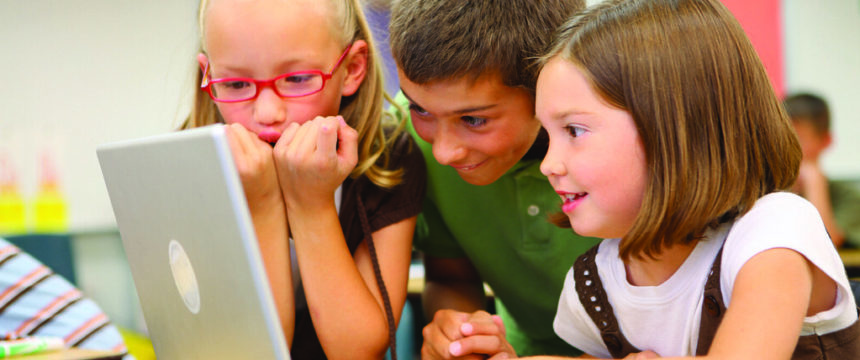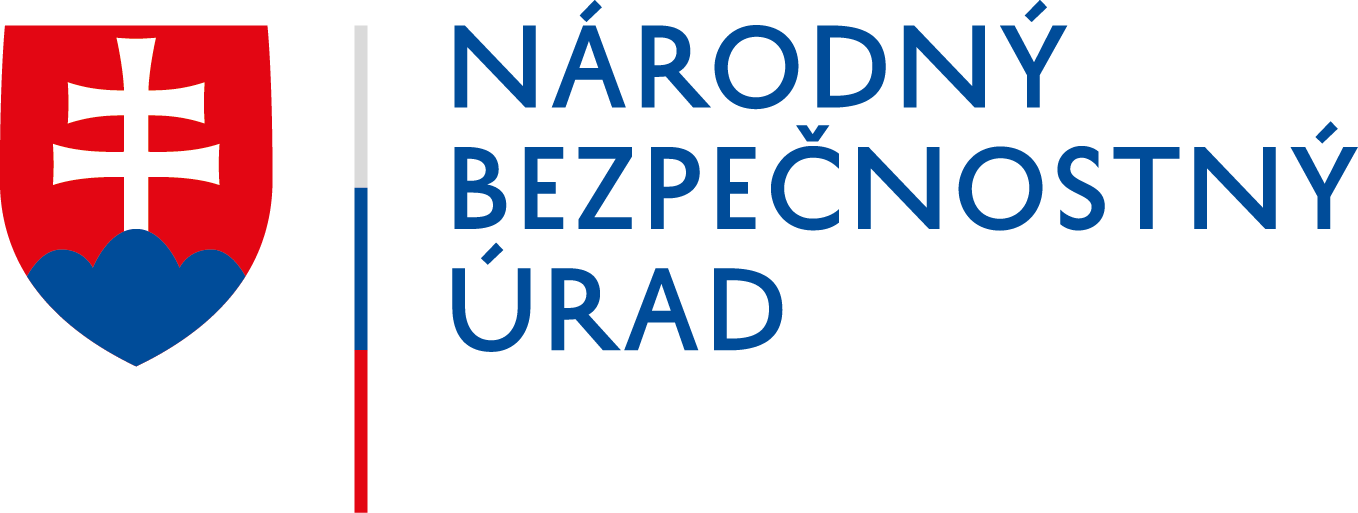
Parents, have you got cyber kids at home?
The current situation pushes all of us to use the Internet more than ever.
We ourselves, our parents and also our children are in cyberspace every day, for several hours a day. According to data, our children, though not being in isolation, use the Internet more than ever before and this trend shows no signs of slowdown.
The research shows[1] that three out of five children use the Internet at home every day. It is reckoned that children between the ages of 8 and 18 spend approximately 45 hours a week in the virtual world, not taking into account the current situation with COVID-19.
Children’s presence in cyberspace and the use of the Internet are currently part of a large number of different activities related to natural developmental stages of our children’s childhood and adolescence.
This fact assigns the most important task to parents; and that is to teach their children to behave responsibly not only in society but also in cyberspace.
A current and unique “COVID-19 situation” therefore provides us not only with a common space directly in our homes, but above all a suitable time for us to talk about cybersecurity.
Being a parent today is a great art of explaining and teaching of a large number of areas and adequate patterns of existence and behaviour that parents have to pass on to their children. These include active, age-appropriate education for children focusing on security while using the Internet, basically, how to be “online”.
Regarding the generation of our children who are almost raised online, it is quite difficult to specify an age at which any of their daily activities would not be a part of the Internet.
The Internet is everywhere and its forms of use are constantly changing a shape, platforms and algorithms. An individual cybersecurity, in other words cyber hygiene, is therefore no longer the topic of “one day” when our children are ready for it.
Children belonging to Generation Z are natural digital aborigines because they have been using the Internet and mobile devices practically since childhood. If parents inculcate their children with the right habits of secure Internet use from an early age, children can also grow into cybersecurity aborigines.
So, how should we approach the cybersecurity topic with our children?
As they say, you need to find that “magic” password.
One of the most secure first steps is to use “magic” unique passwords for an each online account. It is an absolute must for all children to understand why using one master password for all accounts is very dangerous. Should this single password be compromised for any reason, all other accounts associated with this same password will be endangered and will empower dangerous persons to handle our data and personal information.
The moment you realize that your data has leaked, it is usually too late to prevent imminent damage – such as the identity theft or hacking your email account.
As headlines are currently full of various examples of “hacking” and stealing of security and personal information, you must do everything to ensure the security of your online accounts, and particularly, accounts of your children.
Although we hear this advice all the time, it is the best advice: passwords should be unique, should contain 12 or more characters, and a combination of letters and numbers. In addition, it is never good to use names, dates of birth or other personal data in your password.
An example of a good strong password can be a rhyme or the lyrics of a favourite song:
L0nd0n Br1dge is Falling D8wn!
Make sure and periodically check with your children if they use a strong and unique password for each account. With this approach children learn to behave responsibly online and are also confident that their privacy is respected and cannot be compromised.
Let’s protect what is “only ours”
In fact, each piece of information that you share online has the potential to be sold, misused, or leaked. It is very important that children understand what kind of data and information is appropriate to share in this space. Being anonymous gives them a high degree of security because “no one” sees them.
Children have to be instructed and have to be very careful about how much and what personal information they share online. Social networks, Instagram or other platforms subconsciously encourage “socialisation” which indirectly and often unconsciously forces children to share information that they would never provide in person to strangers.
Let’s protect the child’s identity
Constantly and regularly emphasize and explain to your children that they should never provide any personal information, such as name, home address or telephone number via e-mail, Twitter, Facebook or online chats. Talk to your children about online risks, about secure interaction with strangers through information technologies and sharing notes and pictures in cyberspace. There is a variety of educational information that can help children of all ages to understand how to protect their personal data, also pointing to consequences of stolen identity.
A good example of our secure behaviour is a window of the house. It allows us to see outside, but also others to peek inside. And it is up to us how we close that window and keep it safe from unwanted eyes of the others.
Let’s protect information technologies
Regular updates of your IT security software can protect your family from fraudsters, hackers and other online threats that can compromise your software system, security of your personal information and related financial security of your family. Using software security with automatic updates keeps your technology relatively safe and reduces the chance of malware infection.
Check regularly with your children updates of your technologies. Introducing a regular cyber routine into your lives will help you to keep a healthy cyber hygiene, and thus will become a natural part of daily activities of a healthy family life.
Let’s use secured Wi-Fi and VPN networks
Unsecured Wi-Fi networks present a big risk. The advantage of using them for free is often a price too high for a potential threat they pose.
Most places offer a free Wi-Fi to customers – from shopping malls, gyms up to public transport – and this means that easy Internet access is always possible. However, these public networks are not secured, which could be a problem. They are vulnerable and therefore provide an excellent space for actions of various computer criminals and hackers.
Malicious computer persons or hackers usually exploit unsecured networks to launch various types of attacks and to steal all your data and information that you provide while connected to such networks. For example, if you book a taxi and enter new payment information through an unsecured connection in a coffee shop, a hacker can easily obtain this information because your connection is not encrypted.
To mitigate this risk you can use a virtual private network (VPN) when connecting to an unsecured Wi-Fi network. VPN provides a secure Internet encrypted connection that protects your personal data from third parties. As a best practice always use a VPN service to keep your family’s technologies secure and teach your children when and how to use them so they can stay safe no matter where they are.
Emails – use always responsibly
If you want to create any type of online account today – from music streaming through social networks to game applications – you need an email account (address). Most digital generation today almost never asks permission or parental help to create these email addresses. They don’t need it. They are smart enough to create them by themselves.
Even a simple activity, such as creating a seemingly harmless email account can have some potential security risks.
To avoid these risks, it is wise, as soon as possible, once your children can read and write, to show them how the email works and what is necessary to know about sending and receiving this communication.
If you have an email address, it means that you must be also aware of the danger of phishing emails and the potential impact on your family. Phishing scams involve emails that may look harmless but are designed to steal your sensitive information. They ask the recipient to click on a link or an attachment that contain a malicious code.
It is absolutely normal that anyone – even children – can recognize an email that is used to obtain data illegally if they know the warning signals. These signals include grammatical errors, URL addresses or links that direct you to a wrong website or emails from suppliers requesting a credit card information. Teach your children to understand that these suspicious emails must be reported to you immediately. They must not click or open anything in attachments and links unless you are sure that they are able to judge their authenticity and credibility.
Confidence between the child and the parent must be very high in this field. The child must understand that it is better and more advantageous to show such messages to parents than to keep them for themselves. The motivation to achieve such behaviour is individual and requires a high level of parental patience and sticking to principles. This is a lesson for a secure future.
Use some online games to show children how to make responsible decisions in online communication. Online activities may include, for example, exploring communication methods on chat platforms and emails.
Together against cyberbullying
Bullying through information technologies can happen anytime and anywhere.
Teach your children to think about what they publish on the Internet, the impact of these reports on the others and the consequences of these contributions if they are not positive or may be perceived as derogatory. Try to teach your child to tell himself what he wants to write and how he would feel if someone else told him these words in front of a large number of people.
Children often do not realize that what they write is public because they often write it alone, from the safety of their home. A negative virtual communication is very simple, because we do not see the other person and we do not have to perceive subconsciously his feelings or receiving of our words and the information we share. Such social anonymity is undesirable in the early age of the child for his empathic development, and therefore children under 12 are not recommended to use these communication platforms actively.
Keep a regular open communication with the child about everything what is happening in his virtual space. This regularity will help you to recognize more easily the elements of child’s behaviour in case of being bullied.
Today, the Internet is an integral part of childhood and can unpredictably affect the lives of our children. It is up to us, the parents, to teach our children how to surf the online world safely so that they have an adequate knowledge and habits they need for secure acting and protecting themselves and their data.
What is the best advice to parents?
Go and talk to your kids right now.
Sources:
[1] https://qz.com/1764777/how-to-talk-to-your-kids-about-cybersecurity/
https://www2.ed.gov/free/features/cybersecurity.html
https://www.telekom.sk/swift_data/source/pdf/Deti_a_rodicia_v_kyberpriestore.pdf
« Späť na zoznam





